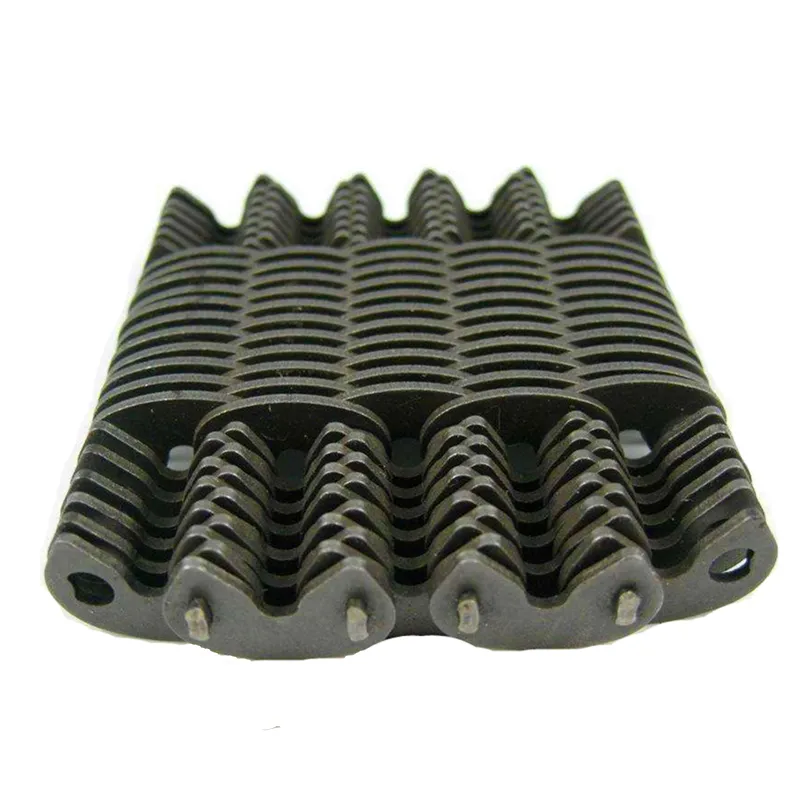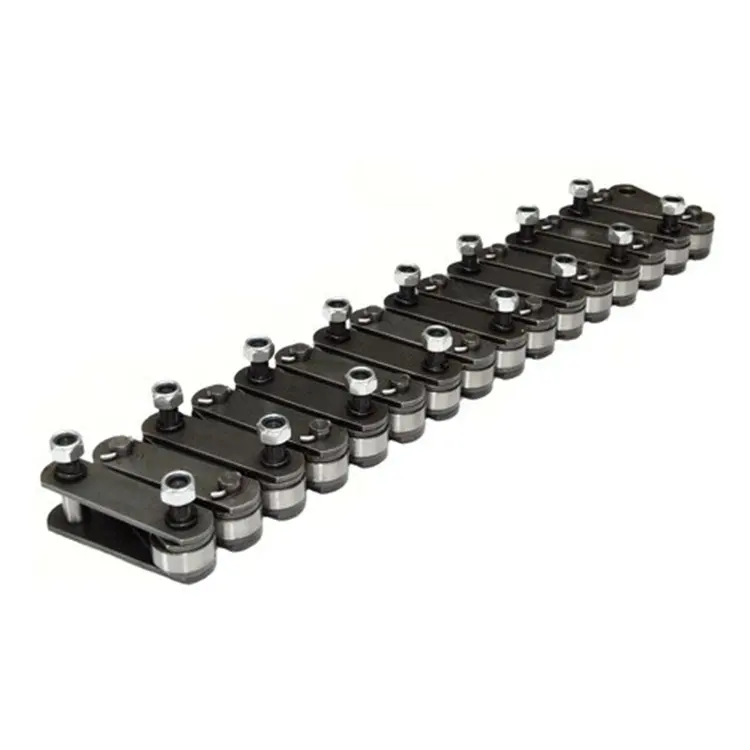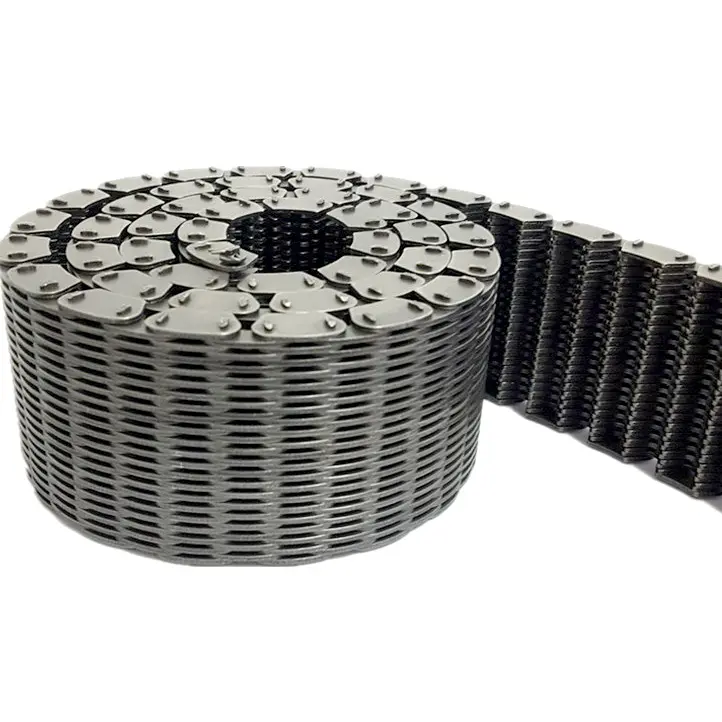Product Description
| OE | 1140A081 |
| Item Name | Timing chain |
| MOQ | 10PCS |
| Warranty | 12 months |
| Price term | EXW HangZhou |
| Delivery time | According to your order |
| Size | OE Standard Size |
| Warranty: | a Year |
|---|---|
| Type: | Timing Chain |
| Material: | Steel |
| Certification: | CE |
| Automatic: | Automatic |
| Standard: | Standard |
| Customization: |
Available
| Customized Request |
|---|

What are the benefits of using stainless steel industrial chains?
Stainless steel industrial chains offer several advantages compared to traditional chains made from other materials. Here are the key benefits of using stainless steel chains:
1. Corrosion resistance: Stainless steel is highly resistant to corrosion and oxidation, making it ideal for applications in humid or corrosive environments. It can withstand exposure to water, chemicals, and various corrosive substances without rusting or deteriorating.
2. Durability and longevity: Stainless steel chains have excellent durability and a long lifespan. They can withstand heavy loads, high temperatures, and frequent cycling without significant wear or fatigue. This reduces the need for frequent replacements, resulting in cost savings over time.
3. Strength and reliability: Stainless steel has high tensile strength and resistance to breakage. It provides reliable performance and can handle heavy-duty applications where strength and reliability are crucial.
4. Hygiene and cleanliness: Stainless steel chains are hygienic and easy to clean. They are non-porous, making them resistant to bacterial growth and contamination. This makes them suitable for industries with strict hygiene requirements, such as food processing, pharmaceuticals, and healthcare.
5. Temperature resistance: Stainless steel has excellent temperature resistance, allowing it to maintain its mechanical properties even in extreme temperature conditions. It can withstand both high and low temperatures without deformation or loss of performance.
6. Aesthetic appeal: Stainless steel chains have a polished and attractive appearance, making them suitable for applications where aesthetics matter, such as architectural or decorative purposes.
7. Versatility: Stainless steel chains are available in various sizes, configurations, and types to suit different applications. They can be found in a wide range of industries, including food processing, pharmaceuticals, chemicals, automotive, and more.
8. Easy maintenance: Stainless steel chains require minimal maintenance. They do not require regular lubrication and are easy to clean, reducing downtime and maintenance costs.
In summary, using stainless steel industrial chains provides the advantages of corrosion resistance, durability, strength, hygiene, temperature resistance, aesthetic appeal, versatility, and easy maintenance. These benefits make stainless steel chains a preferred choice in industries where reliability, longevity, and performance are crucial.

What are the common causes of industrial chain failures?
Industrial chain failures can occur due to various factors:
- Excessive load: Applying a load that exceeds the chain’s capacity can lead to stress and failure. It is important to consider the chain’s rated load and choose the appropriate chain for the application.
- Inadequate lubrication: Insufficient or improper lubrication can result in increased friction and wear, leading to premature chain failure. Regular lubrication with the recommended lubricant and following the manufacturer’s guidelines is crucial.
- Improper tensioning: Incorrect chain tension can cause misalignment, premature wear, and failure. Proper tensioning ensures optimal performance and longevity of the chain.
- Misalignment: Poor alignment between the sprockets can cause the chain to wear unevenly and increase the risk of failure. Proper alignment of the sprockets is essential for smooth operation.
- Wear and tear: Continuous use without proper maintenance and regular inspection can result in chain fatigue, elongation, and eventual failure. Regular inspection and timely replacement of worn-out components are necessary to prevent failure.
- Corrosion: Exposure to corrosive environments can weaken the chain material and compromise its integrity. Using corrosion-resistant chains or applying appropriate coatings can mitigate the risk of corrosion-related failures.
- Lack of maintenance: Neglecting routine maintenance tasks such as cleaning, lubrication, and inspection can lead to chain degradation and eventual failure. Regular maintenance is essential to ensure optimal chain performance and longevity.

How can you prevent industrial chain failures?
Preventing industrial chain failures requires proactive maintenance and proper care. Here are some key steps to prevent chain failures:
- Regular Inspection: Conduct regular inspections of the chain, sprockets, and other components to identify signs of wear, damage, or misalignment. Inspect for proper lubrication and tension as well.
- Lubrication: Ensure proper lubrication of the chain to reduce friction, wear, and corrosion. Use the recommended lubricant and follow the manufacturer’s guidelines for lubrication intervals.
- Tension Adjustment: Maintain proper chain tension to prevent excessive slack or tightness. Improper tension can cause accelerated wear and premature failure. Refer to the manufacturer’s specifications for correct tensioning procedures.
- Sprocket Alignment: Ensure proper alignment of the sprockets to prevent excessive wear on the chain. Misalignment can lead to uneven loading and premature failure. Align sprockets according to the manufacturer’s recommendations.
- Replacement of Worn Components: Monitor the chain for signs of wear and replace worn components, such as chains, sprockets, and bearings, promptly. Continuing to operate with worn components can lead to chain failure and potential damage to the machinery.
- Proper Storage: Store spare chains and components in a clean and dry environment to prevent corrosion and damage. Protect them from exposure to moisture, chemicals, and contaminants.
- Training and Education: Ensure that operators and maintenance personnel are trained in proper chain handling, installation, and maintenance techniques. Knowledgeable personnel can identify potential issues and take appropriate preventive measures.
By following these preventive measures, the risk of industrial chain failures can be significantly reduced. Regular maintenance, proper lubrication, and timely replacement of worn components are critical for ensuring the reliable operation and longevity of the industrial chain.


editor by CX 2023-11-30